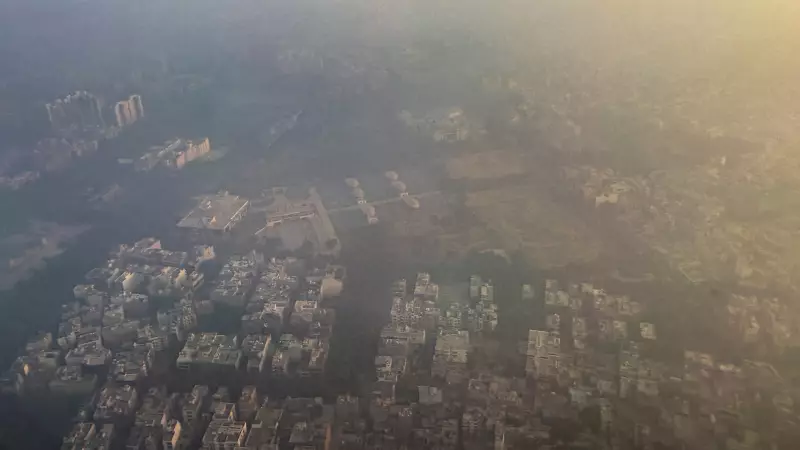
Delhi's battle with toxic air has intensified once again as farm fires in neighboring states continue to rage, pushing the capital's air quality back into the 'Very Poor' category. The familiar haze has returned to cloak the city, bringing with it health warnings and environmental concerns.
The Alarming Numbers
Recent data reveals a troubling trend with Delhi's average Air Quality Index (AQI) settling at 346, firmly placing it in the 'Very Poor' range. The situation appears even more grim when examining specific monitoring stations across the city, with several areas recording significantly higher pollution levels that border on 'Severe' categories.
Stubble Burning: The Primary Culprit
The sharp deterioration in air quality coincides with a dramatic increase in farm fire incidents across Punjab and Haryana. Satellite imagery has captured over 1,000 active fire points in a single day, with Punjab alone contributing significantly to this count. This annual practice of crop residue burning has once again emerged as the dominant factor behind Delhi's pollution woes.
Weather Conditions Worsen the Crisis
Meteorological factors are compounding the problem, with calm winds and low temperatures creating ideal conditions for pollutant accumulation. The slow wind speed, particularly during morning and evening hours, prevents the dispersion of harmful particles, allowing them to settle over the National Capital Region.
Health Implications and Advisory
Medical experts have issued warnings about the health risks associated with prolonged exposure to such poor air quality. Residents, especially those with pre-existing respiratory conditions, children, and the elderly, are advised to:
- Limit outdoor activities during early morning and late evening hours
- Wear N95 or equivalent masks when venturing outside
- Use air purifiers indoors and keep windows closed
- Stay hydrated and monitor any respiratory symptoms
Government Response and Measures
Authorities have reactivated the Graded Response Action Plan (GRAP), implementing several measures to combat the rising pollution levels. These include increased monitoring of pollution hotspots, stricter enforcement of dust control norms at construction sites, and enhanced public transportation services to reduce vehicular emissions.
As Delhi braces for what many fear could be another difficult winter of polluted air, the recurring farm fire crisis underscores the urgent need for sustainable agricultural alternatives and coordinated regional action to address this annual environmental emergency.





